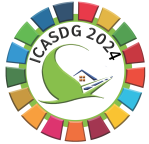1. Scope
This track focuses on emerging technologies and research in environmental sustainability, clean energy systems, water treatment, waste management, and renewable energy innovations. It seeks to address environmental challenges through scientific and engineering solutions that support a low-carbon, resource-efficient future.
2. Track themes
- Innovations in Renewable Energy Systems
(Solar, wind, hydro, geothermal, and hybrid technologies for clean power generation) - Energy Efficiency and Sustainable Power Solutions
(Smart grids, energy storage, building energy performance, and low-energy systems) - Environmental Engineering for Pollution Control
(Technologies for air, water, and soil quality improvement and industrial emissions reduction) - Climate Change Mitigation and Environmental Resilience
(Adaptation strategies, modeling, risk assessments, and resilience planning) - Integrated Waste Management and Circular Economy
(Recycling innovations, waste-to-energy systems, and sustainable materials recovery) - Green Infrastructure and Sustainable Urban Design
(Eco-friendly construction, urban sustainability, and green building practices) - Environmental Impact Assessment and Life Cycle Analysis
(Tools and methodologies for assessing ecological and carbon footprints) - Water and Air Treatment Innovations
(Clean water technologies, air purification systems, and decentralized solutions) - Clean Technologies and Eco-Innovation in Industry
(Green manufacturing, industrial symbiosis, and sustainable production)
2. Scientific Committee ( Editorial Board)
- Prof. Dr. Talal Yusaf, Central Queensland University, Australia
- Prof. Dr. Ali Al-Ahmer, Auburn University, USA
- Prof. Dr. Adem Acir, Gazi University, Turkey
- Raed Al-Rbaihat, Tafila Technical University (TTU) , Jordan
- Daniel Ebhodaghe, University of Southern Queensland , Australia
- Assist. Prof. Dr. Ahmed Razzaq Al-Manea, Al-Furat Al-Awsat Technical University, Iraq
- Prof. Dr. Dhafer Manea Hachim Al-Hasnawi, Al-Furat Al-Awsat Technical University, Iraq
- Assist. Prof. Dr. Ali Najah Kadhim, Al-Furat Al-Awsat Technical University, Iraq
- Assist. Prof. Dr. Gurpreet Singh, Chitkara University, Punjab, India
- Prof. Dr. Muhammad Hassan Ali, Imam Ja’afar Al-Sadiq University, Iraq
4. Publication Ethics
5. Review Process Guidance
All submitted papers will undergo a rigorous evaluation process to ensure academic quality and relevance:
- An initial desk review will be conducted by the track chair to assess basic suitability.
- Submissions will then undergo a double-blind peer review by at least two independent reviewers.
- Reviewers are selected based on subject-matter expertise and experience.
- Evaluation criteria include originality, methodological soundness, policy relevance, innovation, clarity, and alignment with the track themes.
- Authors will receive constructive feedback within 3–4 weeks of submission.
- Selected papers may be requested to revise prior to final acceptance and inclusion in the conference proceedings or a book.
